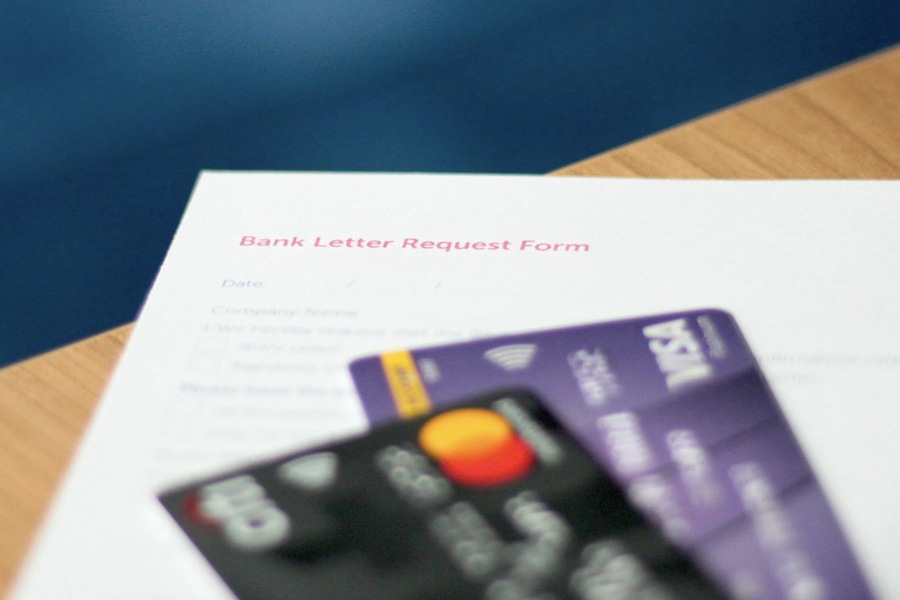The United Arab Emirates (UAE) has cemented its position as a global financial hub, offering one of the safest and most efficient banking systems in the world. For individuals and businesses alike, a UAE bank account represents security, flexibility, and access to unparalleled financial services. Whether you plan to reside in the UAE, operate a business there, or simply take advantage of its favorable banking conditions, understanding the intricacies of UAE bank account opening is essential.
This article delves into every aspect of UAE banking, covering the advantages of its financial system, the various types of banks, the requirements for residents and non-residents, and a detailed walkthrough of the account opening process. By the end, you will have all the information you need to navigate this vital financial step confidently.
Page Content
Why Open a Bank Account in the UAE?
The UAE banking sector is characterized by its robust infrastructure, customer-centric approach, and unwavering commitment to privacy and security. Here are the compelling reasons why individuals and corporations choose to open accounts in UAE banks:
- Economic Reliability
The UAE’s economy is one of the strongest in the Middle East, backed by significant oil revenues, diversified industries, and strategic investments in tourism, technology, and infrastructure. The stability of the UAE’s financial institutions reflects the country’s overall economic health.
- Political Stability
As one of the most politically stable nations in the region, the UAE offers a secure environment for investments and banking. This stability gives account holders peace of mind that their funds are protected against unforeseen political disruptions.
- Reputation for Excellence
UAE banks are globally recognized for their impeccable operational standards, transparent processes, and ethical practices. Their adherence to international banking regulations makes them a preferred choice for clients worldwide.
- Advanced Security Measures
The UAE prioritizes financial and information security. Banks employ state-of-the-art technology to safeguard client data, ensuring the highest levels of confidentiality.
- Support for Foreign Investors
UAE banks are particularly welcoming to foreign investors, offering tailored solutions such as multi-currency accounts, competitive forex rates, and specialized investment services.
- Business-Friendly Policies
For entrepreneurs and corporations, UAE banks provide a suite of benefits, including minimal transaction fees, accessible business loans, and dedicated account managers.
- Freedom of Capital Movement
Unlike many banking systems worldwide, UAE banks impose no restrictions on the free movement of capital, allowing account holders to transfer funds in and out of the country with ease.
- No Maintenance Fees
Most UAE banks do not charge account maintenance fees, reducing the cost burden for both individuals and businesses.
- Comprehensive Online Banking
From managing accounts to executing international transfers, UAE banks offer highly advanced online and mobile banking platforms that enable seamless financial transactions.
Types of Banks in the UAE
The UAE banking landscape is diverse, comprising several types of financial institutions to cater to the varied needs of its clientele. Here’s an overview:
1. Commercial Banks
Commercial banks are the most common type, serving individuals and businesses. They provide services such as savings and checking accounts, personal and business loans, credit cards, and wealth management.
2. Industrial Financial Organizations
These banks are specialized in financing industrial and commercial projects, offering loans and credit facilities to help startups and established businesses expand their operations.
3. Investment Banks
Investment banks handle activities such as stock trading, equity investments, and advisory services for mergers and acquisitions. They are ideal for individuals and corporations interested in capital market opportunities.
4. Islamic Banks
Islamic banks adhere to Sharia law, avoiding interest-based transactions and speculative activities. Instead, they focus on profit-sharing arrangements, making them a popular choice for ethically conscious clients.

Who Can Open a Bank Account in the UAE?
The UAE banking system is open to both residents and non-residents. While the process is straightforward for residents, non-residents may face additional requirements and scrutiny. Here’s what each group needs to know:
For Residents
Residents in the UAE, including citizens and expatriates with valid residency visas, are eligible to open personal and business accounts. Their accounts often come with additional privileges, such as access to loans, credit cards, and investment options.
For Non-Residents
Non-residents can also open accounts in the UAE, although their options may be limited to savings accounts rather than full transactional accounts. Non-resident accounts are particularly appealing for high-net-worth individuals and businesses that require secure offshore banking solutions.
Documents Required for Opening a UAE Bank Account
The required documentation depends on the applicant’s residency status and the type of account being opened.
For Non-Residents
→Non-residents must provide:
→A valid international passport.
→A resident visa (if applicable).
→Proof of income, such as a certificate from the place of employment or a signed employment contract.
→Verification of the residential address in the home country and proof of address in the UAE (if applicable).
→Bank statements for the last six months from the applicant’s home country.
→A detailed CV outlining professional experience and financial background.
Additional documents, such as:
→A utility bill for address verification.
→A letter of recommendation from a bank where the applicant holds an account.
→Details of the source of funds for the account.
For Residents
Residents must provide:
→A valid passport.
→A resident visa.
→Proof of income through an employment contract or certificate of employment.
→Emirates ID, the official identification card for UAE residents.
→Bank statements for the last six months.
→Proof of address in the UAE.

Step-by-Step Process to Open a UAE Bank Account
Opening a bank account in the UAE involves a series of well-defined steps. Here’s a detailed breakdown:
1. Research and Choose the Bank
Select a bank based on your financial needs. Factors to consider include account types, transaction fees, online banking capabilities, and customer service quality.
2. Prepare the Required Documents
Compile all necessary documents and ensure they are translated into Arabic or English, if needed.
3. Submit the Application
Visit the bank in person to submit your application. Some banks allow online application submissions, but an in-person visit will still be required at some point.
4. Phone Confirmation
Certain banks may contact you for verbal confirmation of your intention to open an account.
5. Attend a Personal Meeting
Schedule and attend a meeting with a bank representative. This is mandatory for all applicants.
6. Await Approval
Approval timelines vary:
→Personal accounts: Typically 10 to 30 days.
→Corporate accounts: Approximately 2 months, depending on the complexity and documentation.
7. Activate Your Account
Once approved, the bank will issue a debit or credit card, enabling you to begin transactions.
Key Considerations for Foreign Investors
For foreign investors, the UAE offers a unique set of advantages. Here are some tips to maximize these benefits:
→Choose a bank with international branches or representative offices in your home country.
→Opt for multi-currency accounts if you frequently deal in foreign currencies.
→Leverage the bank’s investment advisory services for portfolio management.
Conclusion
Opening a bank account in the UAE is a strategic decision that offers unparalleled benefits, from economic stability and political security to advanced banking services and confidentiality. Whether you are a resident or non-resident, the UAE’s banking system provides a secure and reliable platform for managing personal and corporate finances.
By carefully preparing the required documents and understanding the process, you can take full advantage of the UAE’s world-class banking system. With their commitment to innovation, client satisfaction, and global connectivity, UAE banks remain a top choice for individuals and businesses worldwide.


